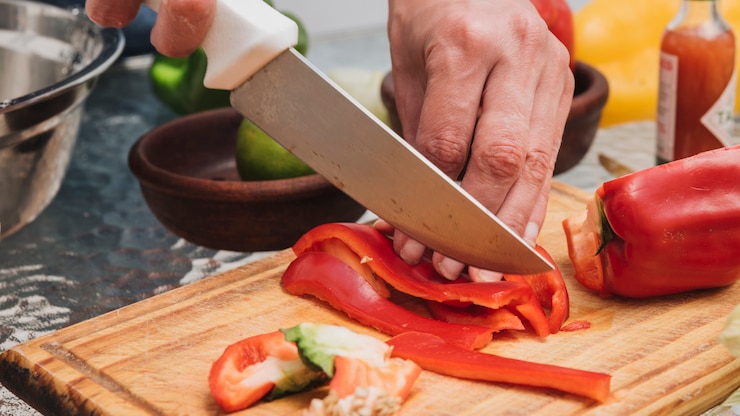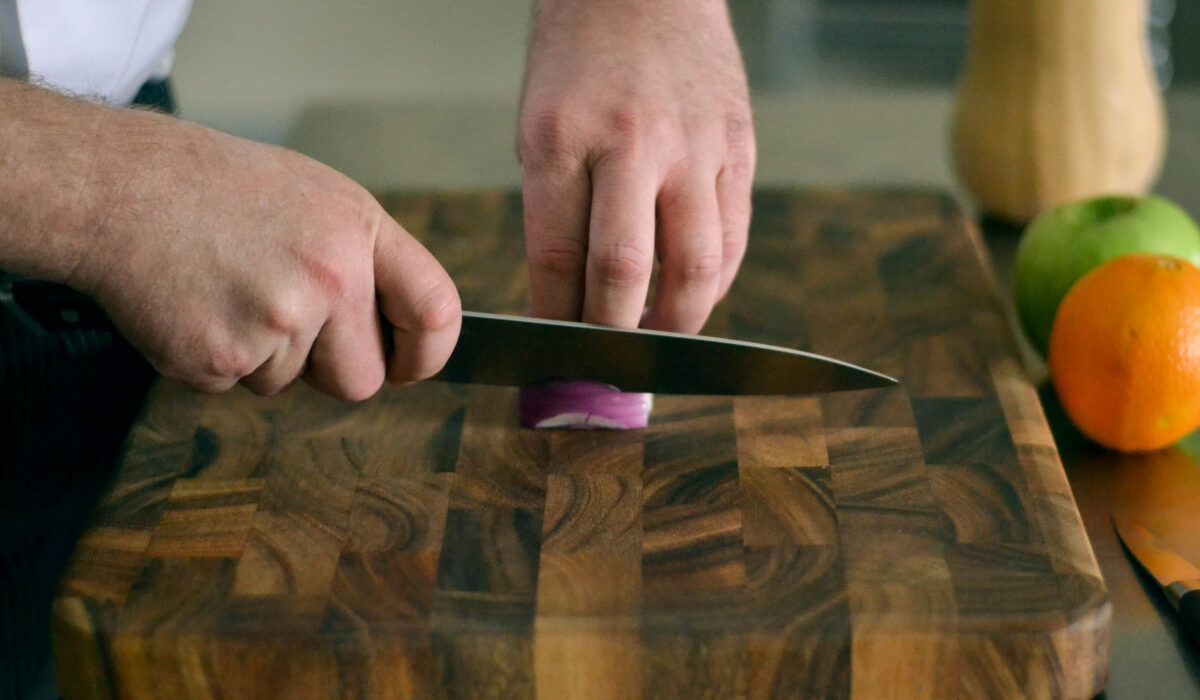The world of culinary arts is vast, and at the heart of it lies an essential tool: the knife. Understanding German knife history is crucial for anyone passionate about cooking, whether you’re a professional chef or a home cook looking to elevate your skills. Germany’s rich history in knife-making is not only a tale of innovation and tradition but also of exceptional quality and craftsmanship, which has influenced kitchens worldwide.

The Origins of German Knives
In tracing German knife history, one must start with the medieval city of Solingen, often referred to as the ‘City of Blades.’ Solingen’s reputation for producing high-quality blades dates back to the Middle Ages. During this time, the city became a hub for swordsmiths, who laid the groundwork for what would later evolve into the renowned German knife-making industry.
Solingen: The Blade City
Solingen’s geographical location played a significant role in its rise as a blade manufacturing center. The abundance of resources, such as water power from the rivers and high-quality iron ore, provided the necessary materials and energy for forging blades. As time progressed, these swordsmiths transitioned to crafting knives, taking advantage of the growing demand for kitchen tools.
Evolution of Knife Crafting Techniques
As the centuries passed, knife-making in Germany evolved significantly. The invention of new techniques and the adoption of advanced technology allowed German knife makers to refine their skills and produce superior products.
Forging and Tempering
One of the key advancements in German knife history was the development of forging and tempering techniques. Forging involves shaping metal through heat and hammering, which ensures the durability and strength of the blade. Tempering, on the other hand, involves heating the blade to a high temperature and then cooling it rapidly, which increases its hardness and edge retention. These techniques have been perfected over time and remain integral to the production of high-quality German knives today.
Innovation in Design
German knives are known not only for their functionality but also for their innovative designs. Companies like Wsthof and Zwilling have been at the forefront of this innovation, constantly pushing the boundaries of what a knife can achieve. Their designs focus on ergonomics, ensuring that the knives are comfortable to use and reduce user fatigue. This commitment to design excellence has cemented Germany’s reputation as a leader in the knife industry.
Impact of German Knives on Global Cuisine
The influence of German knives extends far beyond the borders of Germany. Their exceptional quality and performance have made them a staple in kitchens around the world. From professional chefs to home cooks, many rely on German knives for their precision and reliability.
Adoption by Professional Chefs
German knives are a favorite among professional chefs due to their sharpness, balance, and durability. Chefs appreciate the precision that these knives provide, allowing them to execute intricate cuts with ease. This preference for German knives has helped to spread their reputation globally, making them a go-to choice for culinary professionals.
Popularity in Home Kitchens
Beyond professional kitchens, German knives have become increasingly popular among home cooks. Their user-friendly designs and exceptional performance make them an attractive option for those looking to enhance their culinary skills. The availability of a wide range of German knives, from chef’s knives to paring knives, ensures that there is a suitable option for every cooking need.
Modern German Knife Brands
Today, several German knife brands continue to uphold the tradition of excellence established by their predecessors. These brands are known for their commitment to quality and innovation, ensuring that German knives remain at the forefront of the industry.
Wsthof
Wsthof is one of the most recognized names in the world of knives. Founded in 1814, the company has been producing high-quality knives for over 200 years. Wsthof knives are known for their precision, sharpness, and durability, making them a favorite among chefs and home cooks alike. The brand’s dedication to quality is evident in every knife they produce, ensuring that each piece meets the highest standards.
Zwilling J.A. Henckels
Another prominent name in German knife history is Zwilling J.A. Henckels. Established in 1731, Zwilling has a long-standing reputation for producing exceptional knives. The brand is known for its innovative designs and use of high-quality materials, which result in knives that are both functional and aesthetically pleasing. Zwilling’s commitment to excellence has solidified its position as a leader in the knife industry.
Maintaining Your German Knives
To ensure that your German knives perform at their best, proper maintenance is essential. Regular care will not only extend the life of your knives but also enhance their performance.
Sharpening and Honing
Regular sharpening and honing are crucial for maintaining the sharpness of your knives. Sharpening involves removing material from the blade to create a new edge, while honing realigns the edge without removing significant material. Both processes are essential for keeping your knives in optimal condition.
Proper Cleaning and Storage
Proper cleaning and storage practices are also important for maintaining your German knives. After each use, knives should be washed by hand and dried immediately to prevent rust and corrosion. Storing knives in a knife block or on a magnetic strip will protect the blades from damage and ensure their longevity. For more tips on caring for your knives, you can visit [German Knife Care Tips](https://knivesgenius.com/german-knife-care-tips/) here.
Conclusion
The rich German knife history is a testament to the country’s commitment to quality and craftsmanship. From the medieval swordsmiths of Solingen to the modern innovations of Wsthof and Zwilling, German knives have consistently set the standard for excellence. Whether you’re a professional chef or a home cook, investing in a German knife is a decision that will undoubtedly enhance your culinary experience.

FAQs
What makes German knives unique?
German knives are renowned for their durability, sharpness, and innovative designs. The use of high-quality materials and advanced forging techniques ensure that these knives maintain their edge and performance over time.
How do I choose the right German knife for my kitchen?
When selecting a German knife, consider your cooking needs and personal preferences. Popular options include chef’s knives, paring knives, and bread knives. Look for a knife that feels comfortable in your hand and suits your cutting style.
How often should I sharpen my German knives?
The frequency of sharpening depends on the knife’s usage. Generally, knives should be honed regularly and sharpened every few months to maintain their edge. For more information, you can visit [Knife Maintenance Mistakes](https://knivesgenius.com/knife-maintenance-mistakes/) here.
This article contains affiliate links. We may earn a commission at no extra cost to you.


